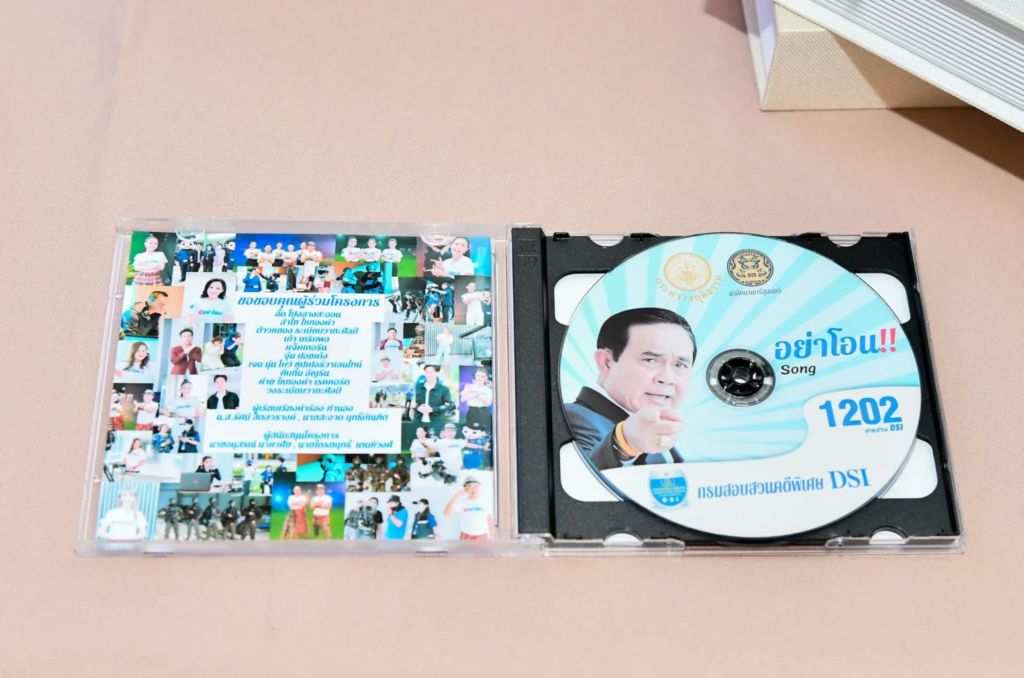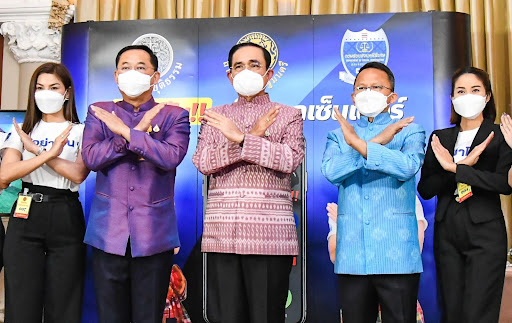“Fear makes you lose judgment. Remember. Don’t give up. Don’t transfer.”
Those are the dope verses the government hopes people will remember next time they are about to be scammed. As a tide of phishing calls and delivery scams washes over Thailand, the government is finally doing something about it: releasing a song to bring people to their senses.
Instead of tracking down call center scams popping up throughout the kingdom, the DSI dropped Ya Aon, or Don’t Transfer, a fiery banger to raise awareness.
The single features two prominent luk thung stars – Somphong Kunapratom and Lamyai Haithongkham – dancing and singing alongside a couple of police mascots. A wealth of Thai celebrities make cameos throughout doing the Don’t Transfer jig.
Because everything can be learned from songs, here are some of the verses:
If you receive a call and get threatened, I tell you now, don’t transfer [the money]
Someone claims to be a DSI official, don’t fall victim or else you and DSI are in trouble
Someone shoots LINE message and exhorted you to give money
Someone says they are a postman, actually they are a thief
Fear makes you lose judgment. Remember. Don’t give up. Don’t transfer.
Rather than turn to TikTok, the government printed some CDs with the song – a sign of its up-to-dateness.

The effort fell prey to ridicule online.
“Call centers are probably practicing the choreography by now,” @Ssaa_1992 tweeted.
Untold numbers of people have fallen prey to fraudulent phone calls and messages, often claiming to be from a delivery service, which ask them to provide personal information and transfer money.
In some cases, government officials have even been scammed, according to Col. Siriwat Deepor, police spokesperson. Siriwat said scammers may pose as public prosecutors, judges or officials from the National Anti-Corruption Commission or other government agencies.
According to anti-fraud app Whoscall, there were nearly 6.5 million fraudulent calls made in the country last year.
The Department of Special Investigation said victims can report scans via hotline 1202.





Reader Interactions